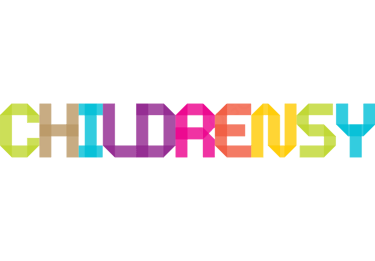Language Development Through Music:
How Incorporating Music Into Daily Routines Can Boost Language Skills in Toddlers
Kylo B
4/13/2024
Language Development Through Music: How Incorporating Music Into Daily Routines Can Boost Language Skills in Toddlers
Music is a powerful tool that can enhance language development in toddlers by engaging multiple areas of the brain associated with speech, rhythm, and emotional expression.
Incorporating music into daily routines stimulates language acquisition, promotes vocabulary growth, and fosters communication skills in young children.
In this article, we'll explore the connection between music and language development in toddlers and provide practical tips for integrating music into everyday activities to support language skills.
Music & Brain Development:
Music engages various regions of the brain involved in language processing, auditory perception, and motor coordination. Listening to music activates neural pathways that support speech and language development, helping toddlers recognize patterns, rhythms, and melodies. Singing and playing musical instruments stimulate brain plasticity and enhance cognitive functions related to language learning.
Benefits of Music for Language Development:
Incorporating music into toddlers' daily routines offers several benefits for language development:
Enhances Phonological Awareness: Music helps toddlers distinguish between sounds and syllables, improving phonological awareness and speech perception.
Expands Vocabulary: Singing exposes toddlers to new words, phrases, and expressions, expanding their vocabulary and language comprehension.
Improves Pronunciation and Articulation: Singing along to songs and nursery rhymes helps toddlers practice pronunciation and develop clear articulation.
Promotes Memory and Recall: Music facilitates memory retention and recall of words, phrases, and melodies, supporting language acquisition and retention.
Encourages Social Interaction: Singing and dancing to music with others fosters social engagement, turn-taking, and communication skills in toddlers.
Practical Tips for Incorporating Music Into Daily Routines:
Parents and caregivers can integrate music into toddlers' daily routines to support language development:
Sing Songs: Sing nursery rhymes, children's songs, and simple melodies with toddlers throughout the day. Encourage participation by clapping, dancing, or using hand gestures.
Use Musical Instruments: Provide toddlers with age-appropriate musical instruments such as tambourines, shakers, or xylophones to explore rhythm and create sounds.
Play Music During Activities: Play background music during playtime, mealtime, or bath time to create a positive and engaging atmosphere.
Incorporate Action Songs: Teach toddlers action songs with movements (e.g., "The Itsy Bitsy Spider") to reinforce vocabulary and motor skills.
Explore Multilingual Songs: Introduce songs in different languages to expose toddlers to diverse sounds and promote language diversity.
Attend Music Classes: Enroll toddlers in music classes or parent-child music programs that emphasize language-rich songs and interactive activities.
Language-Rich Music Activities:
Engage toddlers in language-rich music activities to maximize language development:
Match Songs to Daily Routines: Sing songs related to daily activities such as waking up, eating, or getting dressed to reinforce language concepts.
Emphasize Repetition: Repeat favorite songs and rhymes to reinforce vocabulary and promote language retention.
Encourage Imitation: Encourage toddlers to imitate sounds, rhythms, and melodies during musical activities to develop expressive language skills.
Use Visual Aids: Use visual aids such as picture books or flashcards to complement music and reinforce vocabulary.
Creating a Musical Environment:
Create a musical environment that fosters language development and creativity:
Provide Access to Music: Make a variety of musical resources accessible, including CDs, playlists, and musical instruments.
Encourage Active Listening: Encourage toddlers to actively listen to music, identify instruments, and mimic sounds and rhythms.
Celebrate Creativity: Support toddlers' creative expression through music by encouraging improvisation, songwriting, and storytelling.
Incorporating music into toddlers' daily routines is a fun and effective way to boost language skills and support overall development.
Music stimulates multiple areas of the brain involved in language processing, phonological awareness, and social interaction, making it a valuable tool for language development in young children.
By singing songs, playing musical instruments, and engaging in language-rich music activities, parents and caregivers can create a nurturing environment that promotes vocabulary growth, pronunciation, and communication skills.
Let us embrace the power of music as a catalyst for language development in toddlers, fostering a love for music and language that will benefit them throughout their lives. Through playful and engaging musical experiences, we can empower toddlers to communicate confidently, expressively, and creatively in the world around them.

